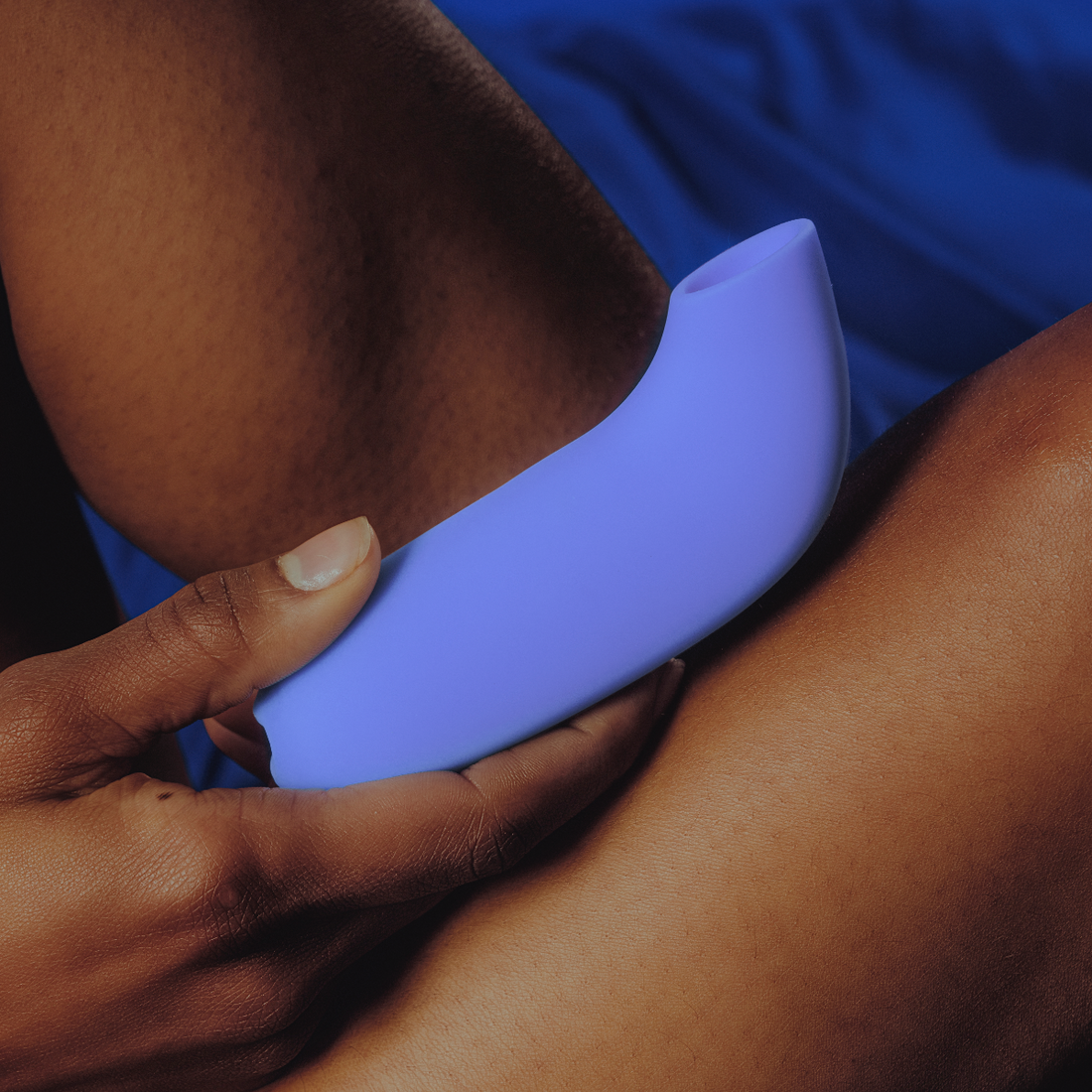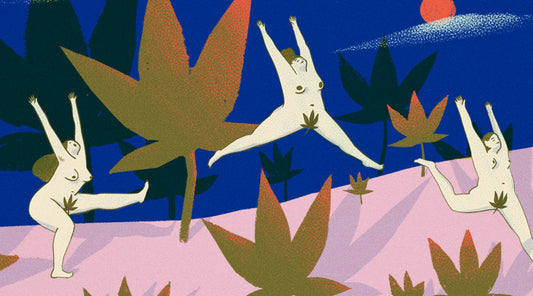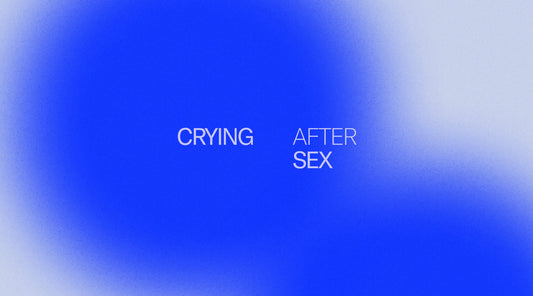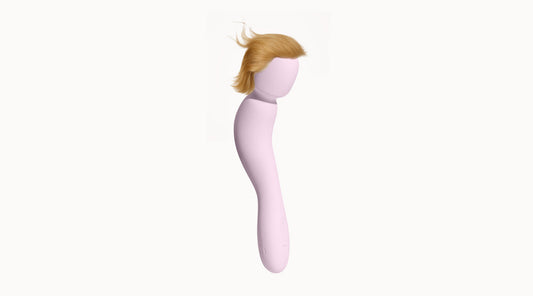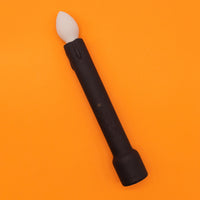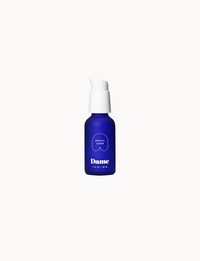Alexandra Fine, Credentialed Sexologist, M. Psych | Written by Dame
The ancient Indian holistic healing system, Ayerveda, lists human needs in a way that’s difficult to argue with – even if you think alternative approaches to medicine are just “quackery.”
Here are the three Ayurvedic pillars of health: food, sleep, and a healthy sex life.
The theory isn’t as complicated as Maslow’s Hierarchy of Needs, but few people would take issue with it. Obviously, we all need food, sleep and sex.
What if the level of your desires doesn’t match society’s norms, though?
If you don’t need or want to eat a lot, people say you’re “lucky” to have a low appetite.
If you don’t need or want to sleep a lot, people say you’re “lucky” to have good genes.
If you don’t need or want a lot of sex? You’re certainly not “lucky.” There must be “something wrong.”
In truth, there’s nothing wrong with having a low libido. Everyone is different, and not all humans have a voracious sex drive. Many are content with only occasional sexual activity. A much smaller number is content with none at all.
If having low sexual desire doesn’t cause issues in your life or relationships, feel free to move on. You have nothing to be concerned about.
But “a naturally low libido” is very different than “a problematic libido” or “a decreased libido.”
If your sexual desire has recently declined or vanished for no apparent reason – or if a low sex drive has become an obstacle to your happiness, satisfaction and overall well-being – read on. There are many physical, medical and psychological causes of low libido, and most can be treated or fully resolved.
Low Libido is a Common Issue
Many people are understandably reluctant to talk about sexual dysfunction and related problems, even with their doctors. That means statistics about the prevalence of low sexual desire are difficult to come by.
The information that is available, however, shows that low sex drive is a very common complaint. For example, noted sex researcher S.R. Leiblum conducted a survey of 1,250 vulva-havers between the ages of 20 and 70, and found that about 25% of premenopausal respondents reported having low sexual desire. The number soared to 33% in menopausal survey participants.
Just as importantly, those who suffered from a reduced sex drive said it meant that it led to less sex, and less pleasure when they did have sex. Many also felt less desirable, and experienced relationship problems, because of their lower libido.
Similar numbers aren’t available for penis-havers, but it is believed that nearly one-third of penis-havers have some sort of sexual dysfunction; the most commonly reported are premature ejaculation and erectile dysfunction, but right behind them is a low sex drive. That’s easy to understand, since the loss of testosterone that’s natural for penis owners as they grow older is a common cause of low libido. We’ll discuss this more in a bit.
Bottom line: libido issues are common in all genders. Obvious follow-up question: Why?
What Can Cause a Low Libido?
In many cases, a person’s low sex drive can be blamed on difficulties in their personal life. In others, it can be caused by medical conditions, medications, lifestyle issues or hormone deficiencies.
Personal Issues
When diagnosing low libido, the culprit is often stress. Work, family and relationship problems can lead to increases in stress and anxiety, as can major life events like illnesses, deaths, weddings and even long-distance moves. And studies have linked anxiety and stress to libido issues in vulva owners. The evidence isn’t quite as clear for penis owners, with some research indicating that anxiety may lead to general sexual dysfunction, but other studies claim it may actually increase their sex drive (apparently as a method of stress relief).
Even clearer are the effects of depression. Those suffering from major depressive disorder, in particular, are likely to report a much lower sex drive. In one study, 33% of those with penises and 42% of those with vulvas said their libido had decreased. It’s difficult to view those results in a vacuum, of course, since depression doesn’t hinge solely on personal issues, and many medications commonly used to treat depression can also contribute to low libido.
The other big issue can be relationship difficulties. Research has shown that – no matter the couples’ genders – there’s a clear positive correlation between levels of intimacy in a relationship and sexual desire. In other words, partners whose relationship has hit the rocks are likely to suffer from low libido. That probably doesn’t come as a surprise, but when low sex drive becomes a major problem it’s not always easy to think straight. Fixing the relationship can often boost a low libido.
How do you approach these issues? We’ll discuss strategies later on.
Medical Conditions
The last thing you want to do when dealing with a medical condition is to also have to deal with unwanted side effects. Unfortunately, low sex drive often accompanies a number of health conditions and diseases. The most common causes:
- Hypertension and heart disease: These two conditions have one thing in common. They are likely to cause blood flow problems that affect sexual performance; in turn, problems with sexual function can cause depression, avoidance of future sexual encounters, or both. The end result is a lower libido, which studies have linked to both high blood pressure and cardiovascular disease.
- Diabetes: There are two reasons why patients with poorly-controlled diabetes may experience low sex drive. One is specific to penis owners; diabetes can cause a drop in testosterone levels, which as we’ll describe shortly, are crucial to sexual function and libido. The other is that the disease can damage the vascular system, which leads to poor blood flow – and you know the rest from our last section.
- Sleep apnea: Separate studies have shown that obstructive sleep apnea can cause sexual problems in both vulva-havers and penis-havers, although the exact reasons are not yet clear.
Other chronic issues and diseases which have been linked to low sex drive include obesity, hypothyroidism, high cholesterol, stroke, prostate cancer, HIV and kidney disease.
Medications and Lifestyle
The prescription meds that are most closely linked to low libido – and for that matter, to many sexual performance issues – are antidepressants. The most severe issues are caused by the class of antidepressants known as selective serotonin reuptake inhibitors (SSRIs) such as Lexapro, Zoloft, Paxil and Prozac, but other classes like MAOIs and tricyclics are also known to lower sex drive and cause performance issues.
There is also evidence that anti-anxiety medications like Xanax, opioid pain meds, some steroids, and a large group of drugs prescribed for blood pressure and heart conditions can also lower sexual desire.
As for lifestyle, the “usual suspects” like poor diet, smoking, excessive drinking and drug use can all play a role in lowering libido. Some also believe that too much porn can also play a role. They claim that it distorts views of body images, sexuality and intimacy, affecting the desire for real-life sexual experiences. There’s no actual proof of that, however.
Hormones
This is another important one. However, the ways that hormone imbalances affect libido vary greatly in those with vulvas and those with penises.
Vulva-Havers
Each gender has three major sex hormones. In vulva owners, estrogen is the one primarily responsible for sexual health and function, and it’s the hormone most closely linked to sex drive.
You probably know that estrogen levels fluctuate during each menstrual period, and are at their highest just before ovulation. That’s believed to be a biological method of encouraging sexual activity and reproduction, since high estrogen levels cause an increase in libido. By contrast, estrogen levels drop at the end of a cycle, while progesterone levels rise – and high progesterone can temporarily kill sex drive by causing the symptoms of PMS, bloating and tiredness.
That’s all normal, up until menopause. That’s when vulva-havers experience a major drop in estrogen levels, and usually, a drop in libido as well as other physical effects like vaginal dryness.
So, as they teach in “women’s health” courses, hormone levels in pre-menopausal vulva owners levels fluctuate monthly, and sex drive fluctuates with them. If estrogen levels stay low, though, they can cause an unusually low libido throughout the cycle. Genetic defects, family history, and medical problems like kidney disease and pituitary gland malfunction may be responsible for an estrogen deficiency as well.
We have two more estrogen-related topics to mention. Hormonal contraception (like the birth control pill) is designed to balance out the highs-and-lows of the body’s estrogen level, so it can lower libido. And even though estrogen levels rise during pregnancy (that’s why a high sex drive is common when expecting), they drop for the first few months after childbirth and can remain low during breastfeeding.
There are two medical conditions that are occasionally diagnosed in vulva-havers whose estrogen levels and overall health and wellness can’t fully explain a low libido, or for whom traditional estrogen therapy doesn’t work. One is called hypoactive sexual desire disorder, defined by a lack of sexual fantasizing and lack of desire. The other, sexual aversion disorder, is characterized by a complete (or near-complete) avoidance of genital sexual contact. They are each referred to mental health professionals for treatment.
Penis-Havers
Testosterone is even more important to penis owners than estrogen is to vulva owners.
The hormone is largely responsible for almost all of their sexual functions, from the development of sex organs – to sex drive. Testosterone levels don’t vary monthly, either; they stay relatively steady until a penis-haver reaches the age of 30 or so. After that, testosterone decreases an average of 1% each year.
That makes it pretty clear that someone with hypogonadism (low testosterone levels, also known as low-T) is likely to experience loss of libido, as well as problems with erections and/or ejaculation. It’s not common in younger people with penises, but about 1-2% of them suffer what healthcare professionals call testosterone deficiency syndrome.
How a Low Libido Can Be Treated
Since there are many potential causes for a low sex drive and they’re all quite different, there are many approaches used to increase libido. It may be appropriate to combine several of them.
Low Libido Caused by Personal Issues
The easiest solutions – although we’re not saying that they’re always easy to accomplish – are lifestyle changes. A healthier diet, regular exercise, cutting down on alcohol consumption, and quitting smoking and recreational drug use may often restore sex drive to “normal” levels.
Just as important is recognizing any potential life stressors, whether they’re financial, job- or relationship-related issues, and finding ways to relieve or lower the stress. Be aware, however, that the solutions aren’t always simple.
Some issues may require major life changes like a shift in work responsibilities or career; others may necessitate long and hard discussions with a partner about life goals, intimacy, sex and the relationship itself. And some libido-lowering stressors like financial problems may not be able to be eliminated, but perhaps they can be better managed.
Stress relief can’t always be accomplished without help. Relationship or marriage counselors, financial advisors, career counselors and even psychotherapists may be needed to deal with stressors which might be the underlying causes of a low sex drive.
Low Libido Caused by Health Conditions and Medications
If a drop in sexual desire might be related to pre-existing medical conditions, the doctor or health professional who’s already treating them should be consulted. They’re trained to recognize the side effects of diseases and prescription drugs, so they can recommend changes to treatment or medications which might increase libido.
Physicians can also help with sexual aversion linked to painful intercourse, or sexual health issues like erectile dysfunction which can impact sex drive.
If a hormone imbalance is responsible, it can also be diagnosed by your doctor – who may then refer make a referral to an endocrinologist for treatment if necessary or desirable.
Low Libido Caused by Hormone Deficiencies
In many cases, low testosterone or estrogen levels can be effectively treated with replacement therapy.
Penis-havers diagnosed with hypogonadism may receive testosterone replacement therapy. Physicians are less likely to prescribe the therapy for older patients suffering a natural loss of testosterone, because the possible side effects aren’t well-understood yet.
Those with vulvas are most likely to be prescribed estrogen therapy only after they’ve gone through menopause, not just because of low libido but also to help treat other effects of low estrogen like vaginal dryness. Some younger patients with low or uncontrolled estrogen levels may also be prescribed this treatment, as well as progesterone and/or testosterone therapy.
Low Libido Caused by Mental Issues
One of the proven causes of a low sex drive is depression, which is best treated with psychotherapy and/or medication. Prescribing professionals will try to avoid using meds which can also cause low libido.
Other mental health or psychological issues like anxiety, poor self-esteem and poor self-image may also lead to low sexual desire, and can often resolved through counseling.
Finally, as we’ve mentioned earlier, hypoactive sexual desire disorder and sexual aversion disorder are usually referred to mental health professionals for treatment in conjunction with standard medical care. There are several prescription medications available for the treatment of HSDD in premenopausal patients, including Addyi and Vyleesi (which has recently been approved by the FDA).

